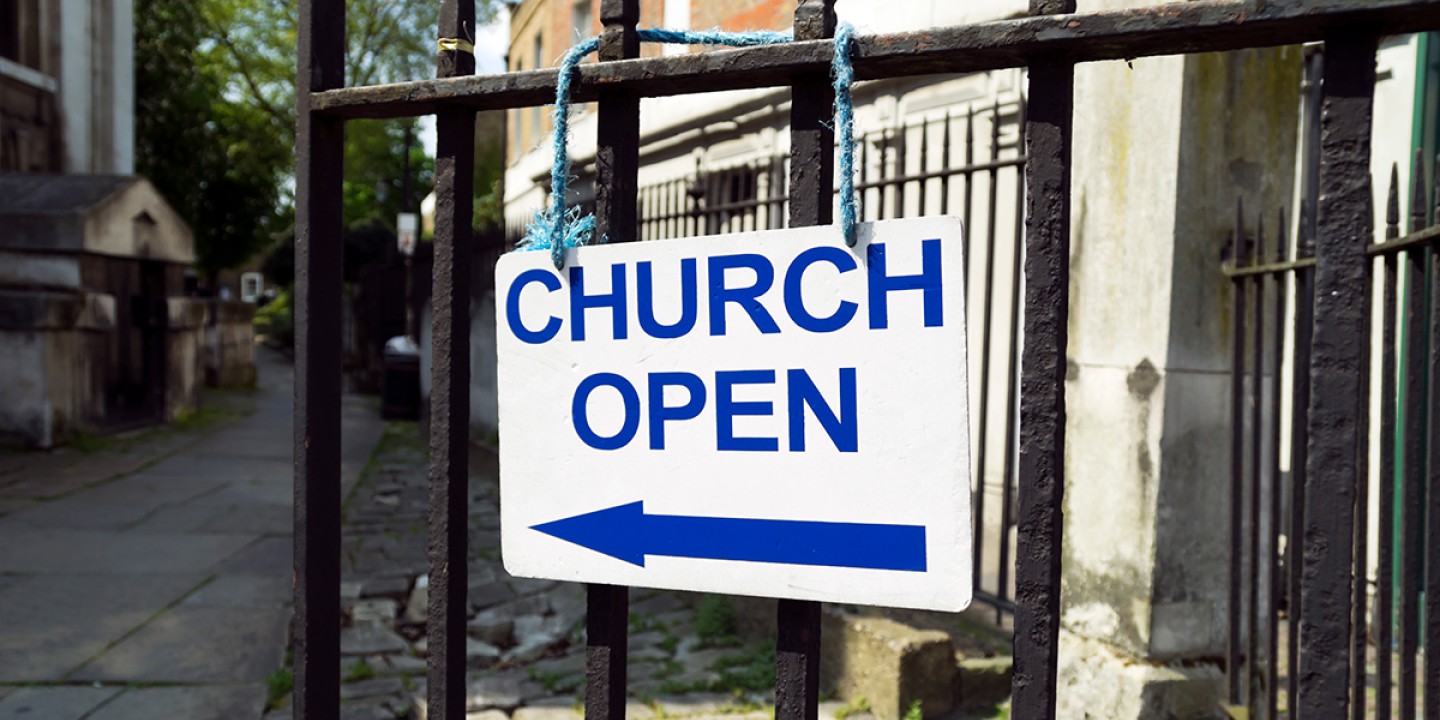Churches obsessed with their right to reopen are missing the point
Genuine Christian faith is larger than the US Constitution.

People who count on communal worship as an organizing center to their life are eager for it to resume after months of stay-at-home measures have taken a toll on morale. The great majority of those excited to get beyond the limitations of online worship have tempered their eagerness to reassemble as congregations. Polls indicate significant respect among believers for the coronavirus’s ability to quickly undo personal and communal health.
Among some conservative Christians, however, the move to reopen churches has taken on the shape of an aggressive campaign. It’s a campaign involving more politics than religion, more culture-war-wedge issue than substantive faith. It’s directed specifically at state government officials hesitant to hastily relax social distancing guidelines. Numerous churches have filed lawsuits claiming that a ban on religious gatherings is a violation of the free exercise clause in the First Amendment. The act of filing a lawsuit for the sake of claiming governmental hostility to religion happens to play well among those who like to promote the idea that Christians are a persecuted and victimized people.
Read our latest issue or browse back issues.
What’s motivating this willingness to put the lives of church members at risk in order to assert First Amendment rights? I don’t think it has anything to do with an honest conviction that various governors can’t stand religion. It has everything to do with an obsession over rights.
The language of rights is the language of power. “No right is safe unless it can be carried to an extreme,” conservative political philosopher Harvey Mansfield once remarked. This may be what we’re witnessing at the moment. Even though all rights have limits—you can’t shout “Fire!” in a crowded movie theater—the absolutizing of rights has become a distorted feature of American politics.
Legal scholar Mary Ann Glendon calls it “the illusion of absoluteness.” In her 1991 book Rights Talk, she points out that when talk of rights turns absolute it inhibits conversation, silences responsibility, and downplays obligation toward the common good. She writes that the “relentless individualism” promoted by such rights talk “fosters a climate that is inhospitable to society’s losers, and systematically disadvantages caretakers and dependents, young and old.”
Rights are certainly important. But there’s a reason the Bible shows little interest in individual rights. If I see my life primarily as a prepackaged set of guaranteed rights owed me, instead of as a gift of God, what motivation is there to feel deep obligation toward society’s most vulnerable? If I’m just receiving what’s my rightful due, why would I ever need to express gratitude? What’s the point of looking outward toward others if I’m chiefly responsible for looking inward and securing the personal rights that are mine?
I want a faith that’s larger than the US Constitution. The Constitution is a fantastically valuable document to any of us who are American citizens. But the Constitution doesn’t require me to give food to the hungry or shelter for the homeless. There is no amendment that forces me to listen to science, or consider the needs of the medically vulnerable, or attend to the aspirations of the elderly. I appreciate my rights. But fixating on those rights at the expense of the love, compassion, and mercy contained in the substance of faith is wrong. Faith is more of an essential service than a lot of things right now, perhaps especially these lawsuits that claim moral high ground for religious freedom.
A version of this article appears in the print edition under the title “Rights at what expense?”







